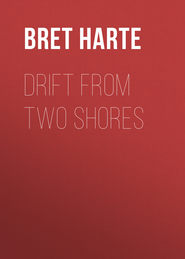По всем вопросам обращайтесь на: info@litportal.ru
(©) 2003-2024.
✖
Complete Poetical Works
Настройки чтения
Размер шрифта
Высота строк
Поля
(SANTA CRUZ, 1869)
Sauntering hither on listless wings,
Careless vagabond of the sea,
Little thou heedest the surf that sings,
The bar that thunders, the shale that rings,—
Give me to keep thy company.
Little thou hast, old friend, that's new;
Storms and wrecks are old things to thee;
Sick am I of these changes, too;
Little to care for, little to rue,—
I on the shore, and thou on the sea.
All of thy wanderings, far and near,
Bring thee at last to shore and me;
All of my journeyings end them here:
This our tether must be our cheer,—
I on the shore, and thou on the sea.
Lazily rocking on ocean's breast,
Something in common, old friend, have we:
Thou on the shingle seek'st thy nest,
I to the waters look for rest,—
I on the shore, and thou on the sea.
WHAT THE CHIMNEY SANG
Over the chimney the night-wind sang
And chanted a melody no one knew;
And the Woman stopped, as her babe she tossed,
And thought of the one she had long since lost,
And said, as her teardrops back she forced,
"I hate the wind in the chimney."
Over the chimney the night-wind sang
And chanted a melody no one knew;
And the Children said, as they closer drew,
"'Tis some witch that is cleaving the black night through,
'Tis a fairy trumpet that just then blew,
And we fear the wind in the chimney."
Over the chimney the night-wind sang
And chanted a melody no one knew;
And the Man, as he sat on his hearth below,
Said to himself, "It will surely snow,
And fuel is dear and wages low,
And I'll stop the leak in the chimney."
Over the chimney the night-wind sang
And chanted a melody no one knew;
But the Poet listened and smiled, for he
Was Man and Woman and Child, all three,
And said, "It is God's own harmony,
This wind we hear in the chimney."
DICKENS IN CAMP
Above the pines the moon was slowly drifting,
The river sang below;
The dim Sierras, far beyond, uplifting
Their minarets of snow.
The roaring camp-fire, with rude humor, painted
The ruddy tints of health
On haggard face and form that drooped and fainted
In the fierce race for wealth;
Till one arose, and from his pack's scant treasure
A hoarded volume drew,
And cards were dropped from hands of listless leisure
To hear the tale anew.
And then, while round them shadows gathered faster,
And as the firelight fell,
He read aloud the book wherein the Master
Had writ of "Little Nell."
Perhaps 'twas boyish fancy,—for the reader
Was youngest of them all,—
But, as he read, from clustering pine and cedar
A silence seemed to fall;
The fir-trees, gathering closer in the shadows,
Listened in every spray,
While the whole camp with "Nell" on English meadows
Wandered and lost their way.
And so in mountain solitudes—o'ertaken
As by some spell divine—
Their cares dropped from them like the needles shaken
From out the gusty pine.
Lost is that camp and wasted all its fire;
And he who wrought that spell?
Ah! towering pine and stately Kentish spire,
Ye have one tale to tell!
Lost is that camp, but let its fragrant story












